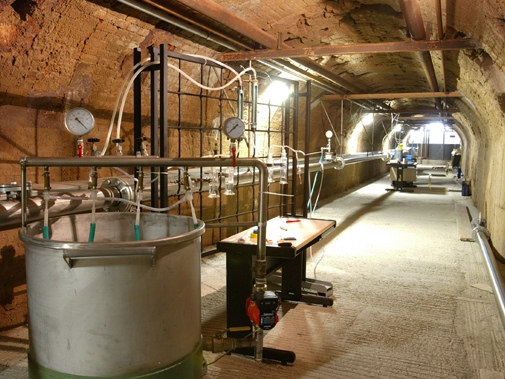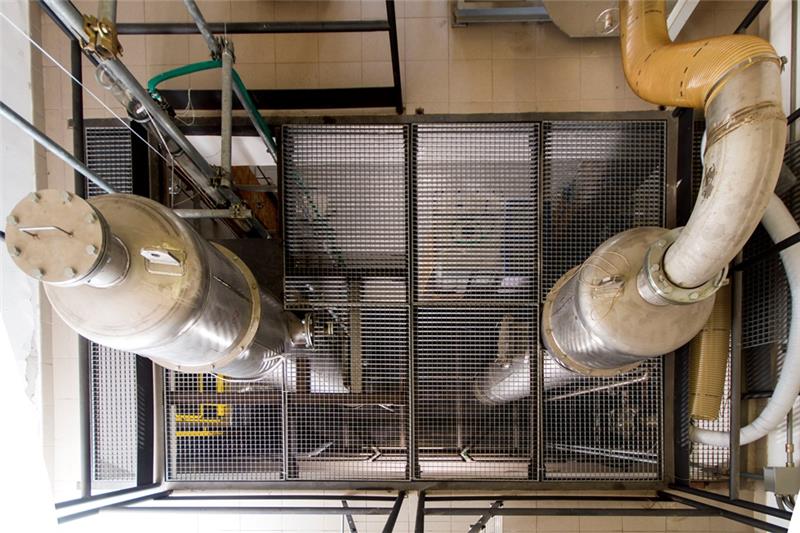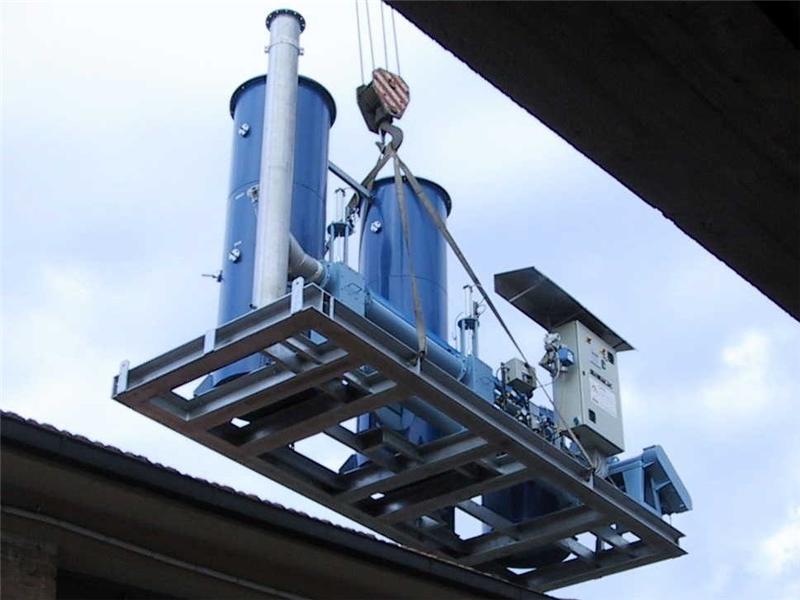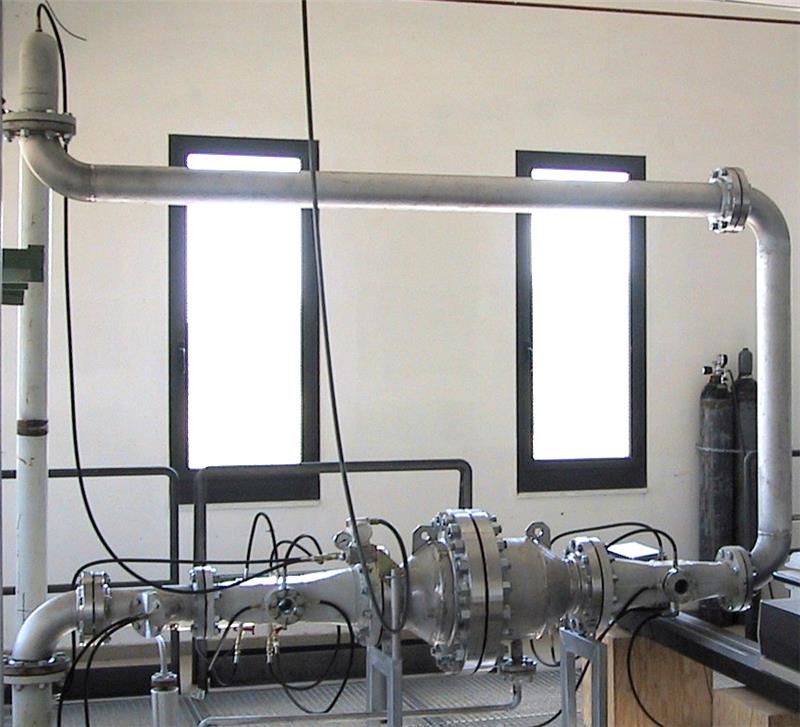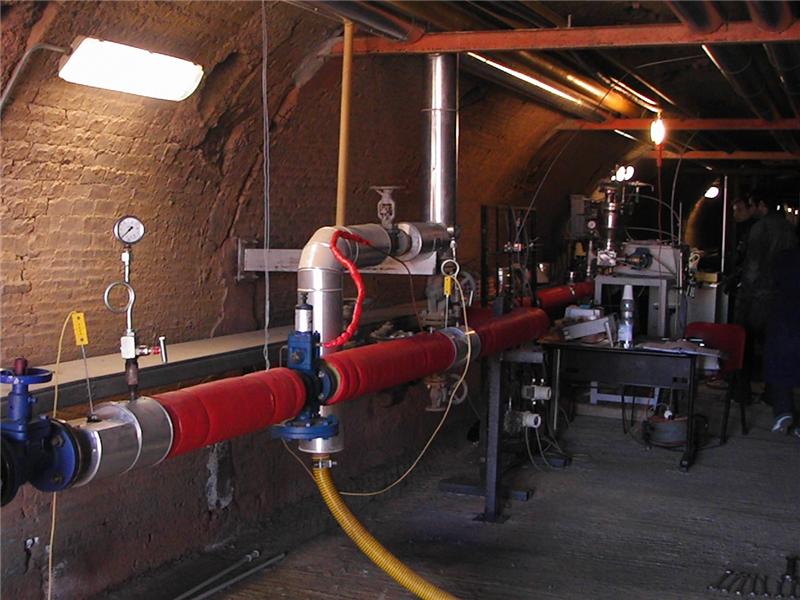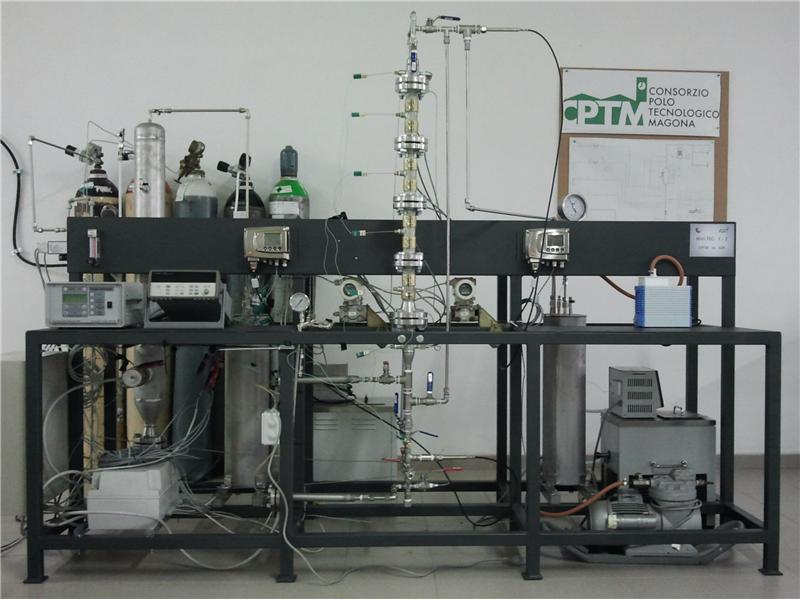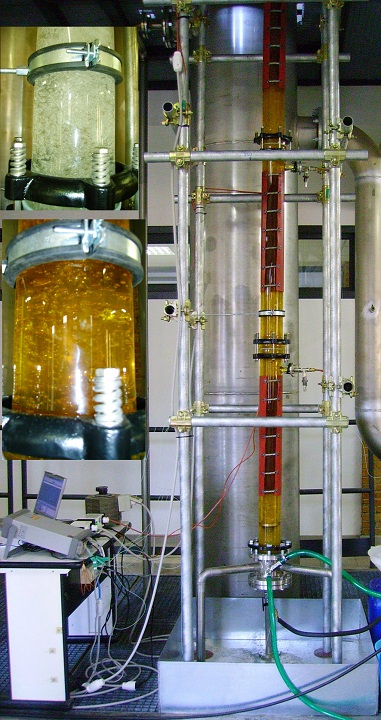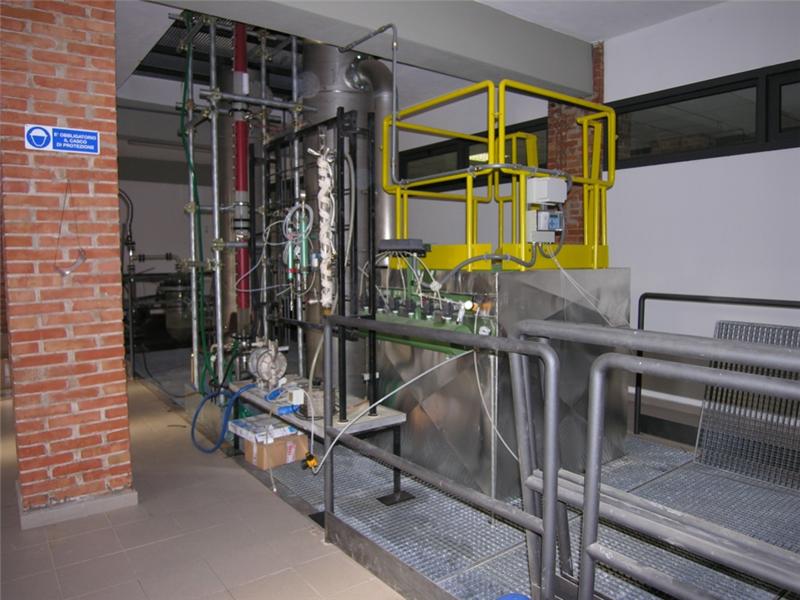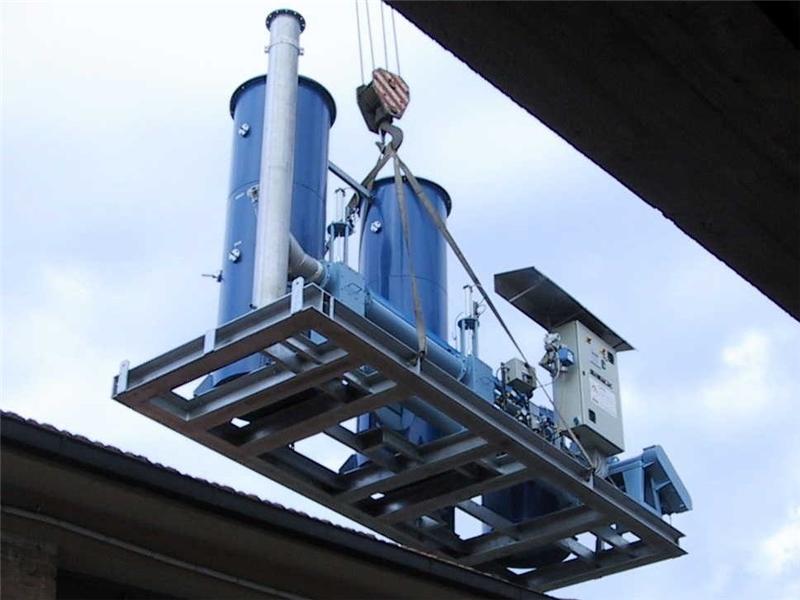CPTM Pilot Plants
The development of a chemical process involves phases of information research and acquisition and phases of elaboration of the gathered information. The experimental activity is often a fundamental step in this path.
CPTM carries out experimental activities from the lab-scale to the pilot-scale: the assessment and elaboration of experimental data gathered from the scale-up is central and fundamental, even from the economic point of view, in the development of an industrial process.

Gaseous pollutants abatement through dry or wet treatment
Forced circulation evaporator for salts crystallization
Regenerative Thermal Oxidizer
Experimental microwave oven
Solid catalysts testing plant
Gaseous pollutants abatement through dry or wet treatment
The plant can treat a gaseous stream up to 1000 Nm3/h, heated up to a temperature of 200°C, in two packing columns and one baghouse filter.
Forced circulation evaporator for salts crystallization
The pilot plant is composed by a 150 L tank and a condenser made of pyrex glass, a stainless steel thermal exchanger heated with steam up to 10 bar, recirculation and extraction pumps, and a centrifuge for salt separation.
The plant can operate at temperature up to 200°C and at a minimum absolute pressure of 5 kPa.
Regenerative Thermal Oxidizer
Flowrate 1000 m3/h, solvent concentration ≤ 10 g/m3.
Experimental microwave oven
The experimental microwave oven is equipped with:
– stainless steel chamber with volume 200 L;
– water-cooled magnetron with maximum power 2 kW;
– inverter for power modulation in the range 0-2000 W;
– reflected power measuring and recording system;
– sample temperature measuring and recording system with optical fiber and/or thermocouple probes;
– PID controller for ramp/soak temperature programming;
– safety system blocking microwave emission in case of oven door opening or cooling water feed interruption.
The microwave oven have been used for:
– reagent drying;
– remediation testing of soil sample contaminated with hydrocarbons;
– clay calcination testing (at temperature up to 800°C);
– tests of oil extraction from oil sand;
– titanium dioxide vapour deposition on a porous matrix.

Solid catalysts testing plant
The pilot plant allows to test solid catalysts both in pellets and in structured geometries at the working temperatures and pressures.
The operating conditions that can be simulated in the plant are reported in the following:
– temperature 0 – 400°C;
– pressure up to 10 bar;
– relative humidity 0 – 100%;
– gas flowrate 5 – 100 NL/min, corresponding to a surface velocity of 0.1 – 2 m/s (GHSV 2000 – 40000 h-1).
The plant was used for:
– hydrogen-oxygen recombination tests on palladium-based catalysts;
– ammonia selective catalytic oxydation (SCO) tests on silver-based and palladium-based catalysts;
– selective catalytic reaction (SCR) tests on bentonitic clay catalysts;
– water adsorption tests on silica gel at pressures up to 10 bar and sorbent regeneration tests.


